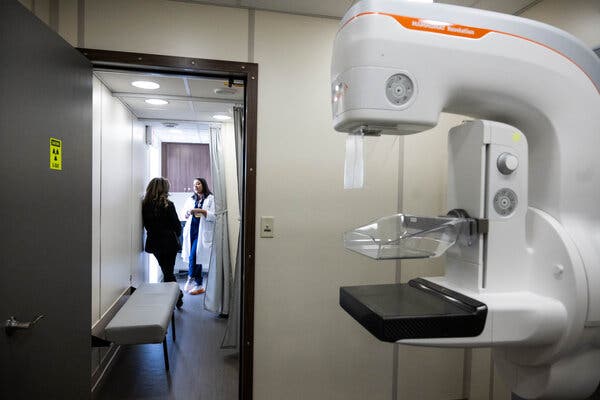Mammography can miss tumors in women with dense breasts, so their doctors often include ultrasound or M.R.I. scans. Patients often wind up paying the bill.

Mammograms can miss tumors in women with dense breast tissue. So for these patients, doctors often include a second scan — ultrasound, for example, or an M.R.I. — which are more likely to turn up cancers at early stages.
But some older patients are running into an unexpected twist. Though many women see the extra scan as a routine form of prevention, Medicare won’t pay for it, and some patients are left to pick up a hefty tab.
Joellen Sommer, 66, who lives in Manhattan, went for her annual breast cancer screening in March. But the clinic’s staff said that while her mammogram would be fully covered by Medicare, a so-called supplemental ultrasound was not.
Ms. Sommer has dense breasts, and a family history of breast cancer. She said she has received mammograms and ultrasound imaging throughout her adult life. “I just don’t understand how something that has been the recommended diagnostic test for years is suddenly not covered by Medicare,” she said.
“My mother had breast cancer, my aunt had breast cancer — I guess that’s not enough,” she added. “I wonder if it was a test for men, if the same issue would arise.”
Lenox Hill Radiology in New York City has started warning patients that if they are insured by Medicare, they may be on the hook for up to $450 if they receive a breast ultrasound, even if breast tissue is known to be dense and the extra scan is performed on the same day as a screening mammogram.

